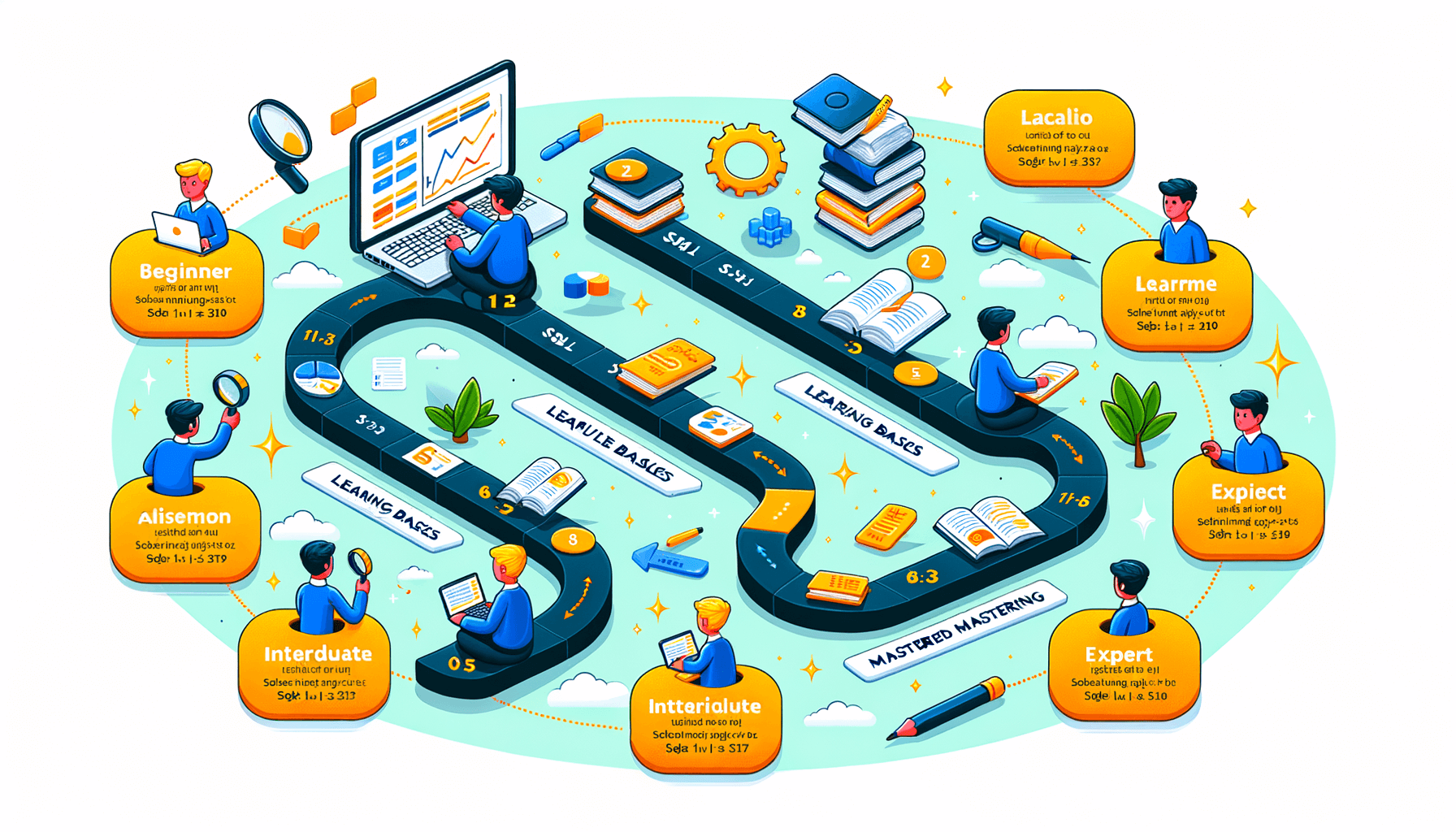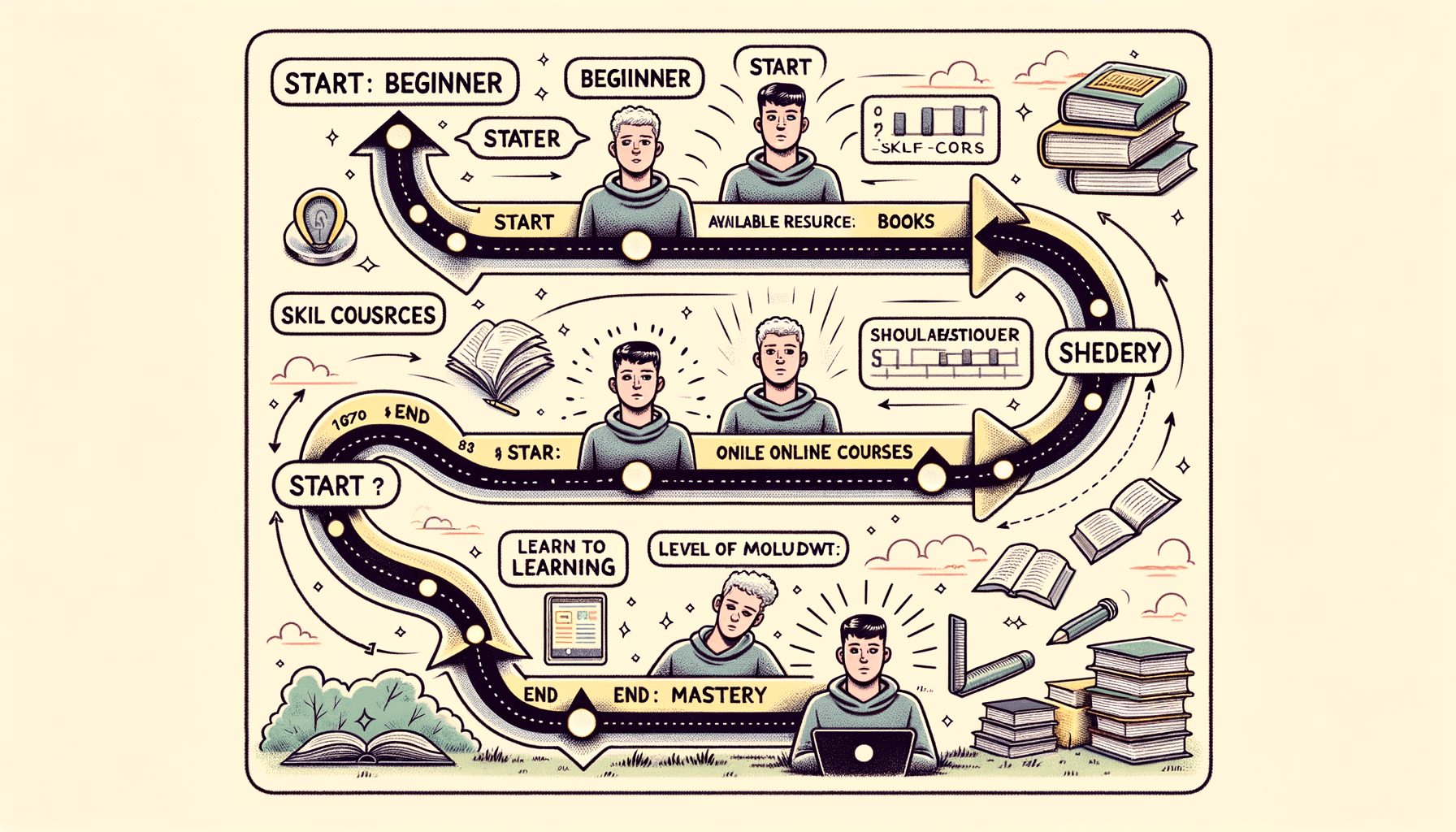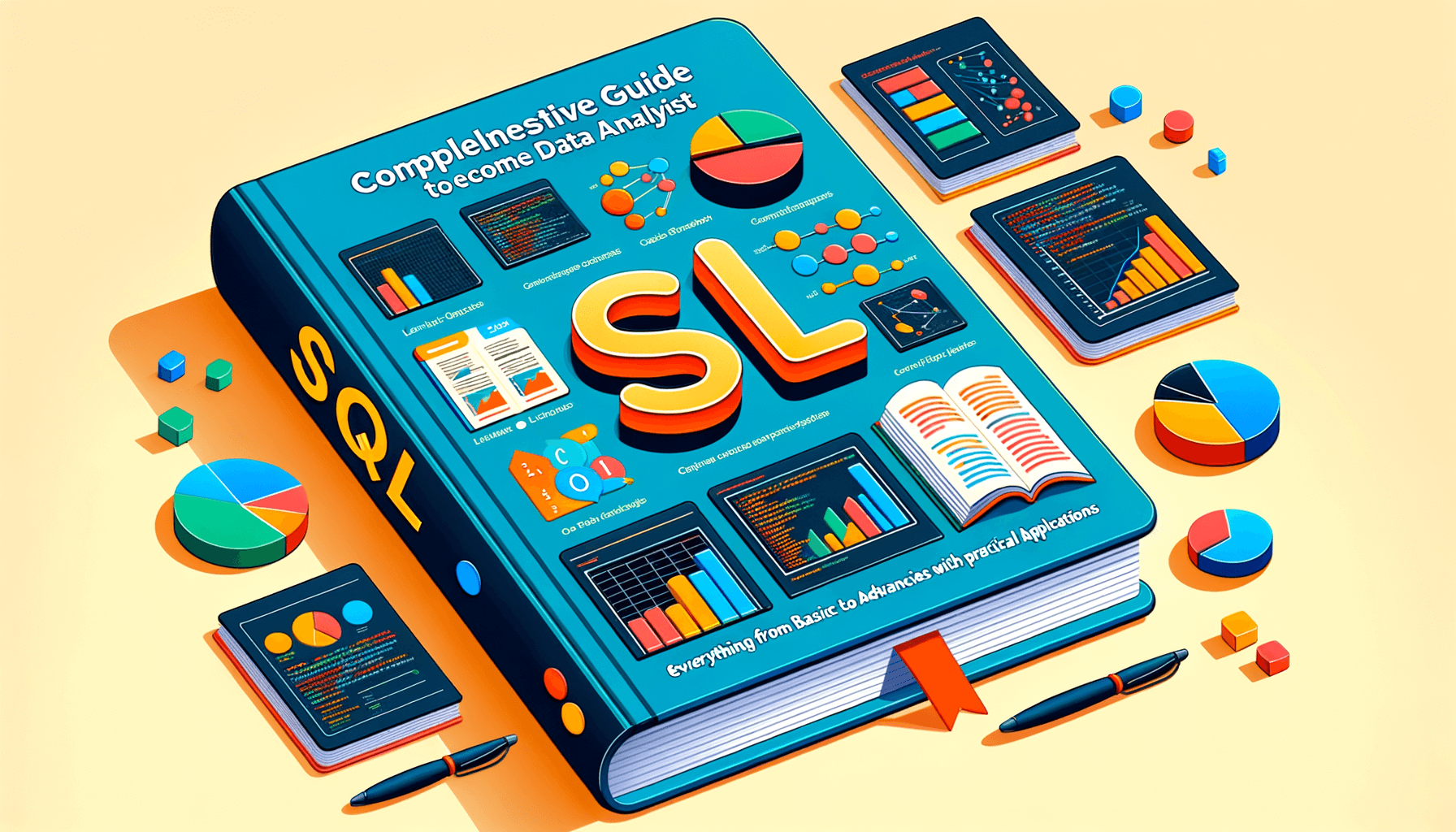A big variety of articles and resources

How Long Does It Take to Learn SQL Language? Time Estimates and Tips
 Sia Author and Instructor
Learn SQL
Sia Author and Instructor
Learn SQL
8 minute read
Learning SQL can seem like a big task, but with the right plan, you can do it. SQL is key for managing and understanding data. Whether you're just starting or looking to improve, knowing how long it might take can help you stay on track.
Key Takeaways
- Prior programming experience can make learning SQL faster.
- The quality of learning resources impacts how quickly you learn.
- Consistent time commitment is crucial for mastering SQL.
- Basic SQL concepts are foundational and can be learned quickly.
- Advanced SQL techniques require more time and practice.
Factors Influencing the Time to Learn SQL
Prior Programming Experience
Our background in programming can greatly affect how quickly we pick up SQL. If we've already worked with other languages, we might find SQL easier to learn. For example, someone with experience in Python or JavaScript will likely grasp SQL concepts faster than a complete beginner.
Learning Resources
The quality and type of learning materials we use can also play a big role. A well-structured course can make a huge difference. For instance, a data analyst - introduction to SQL course offers hands-on projects, personalized support, and industry best practices. Instructor Eric Vanier specializes in SQL optimization and database management.
Time Commitment
How much time we dedicate to learning SQL each day or week is another key factor. Consistent practice, even if it's just an hour a day, can lead to faster mastery. On the other hand, sporadic study sessions might slow down our progress.
The more effort and time we put into learning SQL, the quicker we will become proficient.
Basic SQL Concepts and How Long They Take to Learn
Learning the fundamental concepts of SQL is essential for beginners. Understanding databases, writing simple queries, and using SQL functions are the building blocks of SQL proficiency. It's important to grasp these concepts thoroughly to progress in SQL learning. Practice and repetition are key to mastering these basics. By dedicating time and effort to these foundational skills, beginners can build a strong SQL knowledge base.
Intermediate SQL Skills and Their Learning Duration
Joins and Subqueries
When we move to intermediate SQL skills, learning about joins and subqueries is crucial. These concepts allow us to combine data from multiple tables and perform more complex queries. Mastering joins and subqueries typically takes about 2-3 weeks of dedicated practice. We recommend using resources like the sqlmicro course to gain practical experience.
Data Manipulation
Data manipulation involves inserting, updating, and deleting data within a database. This skill is essential for maintaining and managing databases effectively. On average, it takes around 1-2 weeks to become comfortable with data manipulation commands. Hands-on practice is key to understanding how these commands work in real-world scenarios.
Indexing and Optimization
Indexing and optimization are advanced topics that help improve the performance of SQL queries. Learning how to create and use indexes can significantly speed up data retrieval times. Typically, it takes about 2-4 weeks to grasp these concepts thoroughly. We suggest focusing on practical examples and experimenting with different indexing strategies to see their impact on query performance.
Investing time in mastering intermediate SQL skills can greatly enhance our ability to work with databases efficiently. The effort we put in now will pay off in the long run, making us more proficient in handling complex data tasks.
Advanced SQL Techniques and Time Investment
Stored Procedures and Triggers
Stored procedures and triggers are essential for automating tasks and ensuring data integrity. Learning to write and optimize these can take around 2-4 weeks, depending on your prior experience. Mastering these tools can significantly enhance your database management skills.
Advanced Query Optimization
Advanced query optimization involves fine-tuning your SQL queries to run more efficiently. This skill is crucial for handling large datasets and can take 3-6 weeks to learn. You'll need to understand indexing, query plans, and performance tuning.
Handling Large Datasets
Working with large datasets requires specialized techniques to ensure performance and accuracy. This can take an additional 4-8 weeks to master. You'll learn about partitioning, parallel processing, and other methods to manage big data effectively.
Investing time in advanced SQL techniques pays off by making you a more proficient and efficient database professional.
Practical Tips to Accelerate SQL Learning
Hands-On Practice
One of the best ways to learn SQL quickly is through hands-on practice. By working on real-world problems, we can better understand how SQL works. Practice helps us remember concepts better and makes it easier to apply what we've learned. We can master SQL basics for beginners at our own pace. No credit card required. Login or sign up to start learning with SQLSkillz.
Utilizing Online Courses
Online courses are a great resource for learning SQL. They offer structured lessons and often include quizzes and projects to test our knowledge. Many platforms provide free courses, so we can start learning without any cost. It's important to choose a course that matches our skill level and learning style.
Joining SQL Communities
Being part of an SQL community can be very helpful. We can ask questions, share our experiences, and learn from others. Many online forums and social media groups are dedicated to SQL learners. By joining these communities, we can stay motivated and get support when we face challenges.
Consistent practice and community support are key to mastering SQL quickly. By using these tips, we can make our learning journey smoother and more enjoyable.
Common Challenges in Learning SQL and Overcoming Them
Syntax Errors
One of the first hurdles we face when learning SQL is dealing with syntax errors. These mistakes can be frustrating, but they are a normal part of the learning process. Paying close attention to detail and practicing regularly can help us minimize these errors. Using tools like SQL syntax checkers can also be beneficial.
Complex Query Logic
As we progress, the complexity of our queries increases. Writing complex queries can be challenging, especially when dealing with multiple tables and conditions. Breaking down the query into smaller parts and understanding each component can make this task easier. Additionally, practicing with real-world examples can help us get better at constructing complex queries.
Performance Issues
Another common challenge is optimizing query performance. Poorly written queries can slow down the database, making it less efficient. Learning about indexing, query optimization techniques, and understanding the execution plan can help us write more efficient queries. Regularly reviewing and refining our queries is also a good practice to ensure optimal performance.
Overcoming these challenges requires patience, practice, and a willingness to learn from our mistakes. By staying persistent and using the right resources, we can become proficient in SQL.
Learning SQL can be tough. Many people struggle with understanding complex queries and database management. But don't worry, you can overcome these challenges! Visit our website to find courses that will help you master SQL step-by-step. Our expert instructors and AI-powered tools make learning easy and fun. Start your journey to becoming a SQL pro today!
Conclusion
Learning SQL can be a rewarding journey that opens up many opportunities in the tech world. The time it takes to learn SQL varies depending on your background and how much time you can dedicate to studying. For some, it might take a few weeks to get comfortable with the basics, while others might need a few months to master more advanced topics. Remember, practice is key. The more you work with SQL, the better you'll get. Use the tips and resources mentioned in this article to guide your learning process. Stay patient and persistent, and you'll find yourself becoming proficient in SQL in no time.
Frequently Asked Questions
How long does it take to learn basic SQL?
Learning the basics of SQL usually takes around 2 to 3 weeks if you study a little bit each day.
Do I need prior programming experience to learn SQL?
No, you don't need any prior programming experience. However, having some knowledge can make the learning process faster.
What are the best resources for learning SQL?
There are many great resources like online courses, tutorials, and books. Websites like Codecademy, Coursera, and Khan Academy are good places to start.
How much time should I commit daily to learn SQL effectively?
If you can spend about 1 to 2 hours each day practicing SQL, you'll see good progress in a few weeks.
What are some common challenges when learning SQL?
Some common challenges include understanding complex query logic, dealing with syntax errors, and optimizing query performance.
Can joining SQL communities help in learning SQL?
Yes, joining SQL communities can be very helpful. You can ask questions, share your knowledge, and learn from others' experiences.
Related Articles

How Hard Is It to Learn SQL? A Comprehensive Guide
9 minute read

How Long Does It Take to Learn SQL?
9 minute read

How should I learn SQL to become a data analyst?
14 minute read




